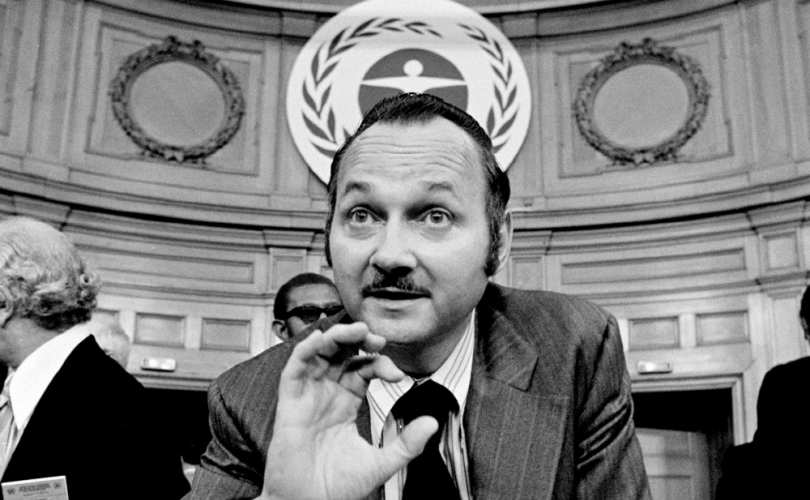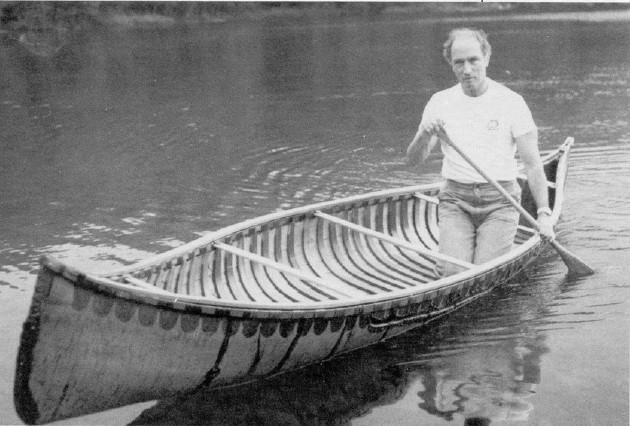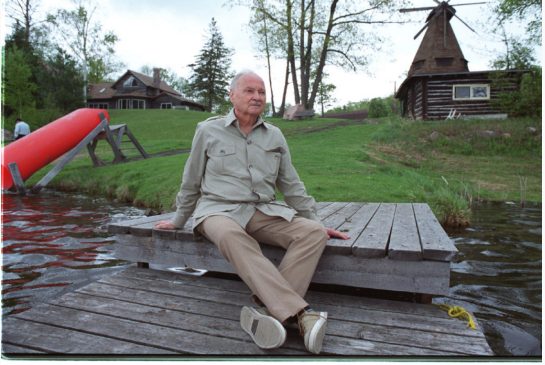Lost and Found: Thank you Maurice Strong
Posted by Daniel Hoornweg on December 07, 2015
Everyone has a special spot, a place they feel most at home; their querencia. For Maurice Strong it was Lost Lake and his ‘cabin’ near Buckhorn, Ontario. Even Mr. Strong’s computer password included the term lostlake.
I was fortunate to get to know a few things about Mr. Strong while working alongside him at CH2M Hill in Toronto, and through a couple of committees and meetings when I worked at the World Bank in Washington. I also had the good fortune to have dinner with him and Nicholas Sonntag in Beijing (Nick was the man who did much of Mr. Strong’s work – sadly, and far too soon, Nick also passed away earlier this year). I also spent a couple nights at the Lost Lake cabin (though not with Mr. Strong).
Strong was one of those rare people that seemed to polarize responses: responses to his ideas and passions like sustainable development, and at times, responses to himself.
Strong, like all of us was human, with all that entails: passion, ego, accomplishment, frailty, family, hurt and hope. When coming back from a trip there would be as much time spent discussing who was at the meeting and where they sat, as there was about the meeting’s results. The latter part of Strong’s life was troubled by allegations and rumours. The dust is settling on his obituaries, complete with strong opinions and inaccuracies, like the New York Times claiming he was ‘a self-made oil and gas billionaire.’ He was not poor but he certainly was not as rich as some people seem to think.
The strongest vitriol for Strong was usually leveled by those who feared he represented some sort of global government, intent on taking away personal liberties. The National Post and right-wing enthusiasts in the U.S. were among the more vocal.
John Ralston Saul, a kindred spirit of Strong stated in his memoriam that he was ‘the last mythic founder of the international environmental movement.’ He pointed out the irony of Strong’s passing just three days before the latest high-stakes meeting for a global environmental agreement in Paris. COP21 in Paris is the latest in a long series of meetings starting with the 1972 Stockholm Conference on the Human Environment that Strong convened on behalf of the United Nations.
Strong’s genius was his ability to bring people together. I once joked that he was the ‘Bermudian with the coffee’. Despite Bermuda’s idyllic veneer, it can at times be embroiled in petty battles and racial undertones. However any animosity and discontent vanish as soon as the storm passes and the clean up begins. I was in Bermuda for two hurricanes, while also being one of the government’s chief union negotiators. On both occasions after the storm passed and the clean up team assembled, a wise person brought coffee. The coffee, but more importantly the sage who brought the coffee, helped everyone to focus on the task at hand, and put real or imagined slights aside.
 This was Strong’s gift. People agreed to his requests. He scored a diplomatic coup when he got India’s Prime Minister Indira Gandhi to attend the 1972 Stockholm Conference (her speech at that visit is still one of the most powerful inputs to the global discussion on sustainable development). Strong cajoled heads-of-state and businesses to Rio de Janeiro. And if he could have somehow got everyone to his Lost Lake cabin he might just have pulled off his dream of sustainable development.
This was Strong’s gift. People agreed to his requests. He scored a diplomatic coup when he got India’s Prime Minister Indira Gandhi to attend the 1972 Stockholm Conference (her speech at that visit is still one of the most powerful inputs to the global discussion on sustainable development). Strong cajoled heads-of-state and businesses to Rio de Janeiro. And if he could have somehow got everyone to his Lost Lake cabin he might just have pulled off his dream of sustainable development.
Right: Maurice Strong organized the UN’s first environmental conference in Stockholm in 1972
Hanging from the roof of the Lost Lake cabin was one of Mr. Strong’s favorite things – a birchbark canoe given to him by First Nations representatives when he was CEO of Ontario Hydro. I don’t know if Mr. Strong ever paddled that canoe. There was a bit of wistfulness about it – maybe a nod to that iconic picture of Pierre Elliot Trudeau paddling one that every Canadian canoeing aficionado knows (of course Strong knew Pierre Trudeau well – it was Pierre Trudeau who called him back from the UN to be CEO of the newly formed PetroCanada).
 Many conversations were likely held in the kitchen below that canoe: Colin Powell talking about North Korea, Jim Wolfensohn before he led the World Bank, business people, and politicians from around the world discussing over dinner, with splashes of comradery, future plans, grand schemes and expectations, and a chardonnay or merlot. Maybe with the plaintiff call of a loon outside in the still evening.
Many conversations were likely held in the kitchen below that canoe: Colin Powell talking about North Korea, Jim Wolfensohn before he led the World Bank, business people, and politicians from around the world discussing over dinner, with splashes of comradery, future plans, grand schemes and expectations, and a chardonnay or merlot. Maybe with the plaintiff call of a loon outside in the still evening.
Left: Pierre Trudeau in 1974
Lost Lake is small. You can almost throw a stone across it. The lake is steeped in local folklore. A spirit said to be resting in the shallow marl. If one night you were to come across the lake and see an old man out in a birch bark canoe, be not afraid. There will of course be a story or two you are well advised to listen. What his latest travels have entailed and who he’s seen along the way, maybe even who sat where. But listen long enough and you will also find deep knowledge, respect for the land, perseverance, and above all, hope.

Above: Maurice Strong at his country home on Lost Lake in Buckhorn, Ont. in 2000 [Sal Sacco/TORONTO STAR]
Filed under: Sustainability 101